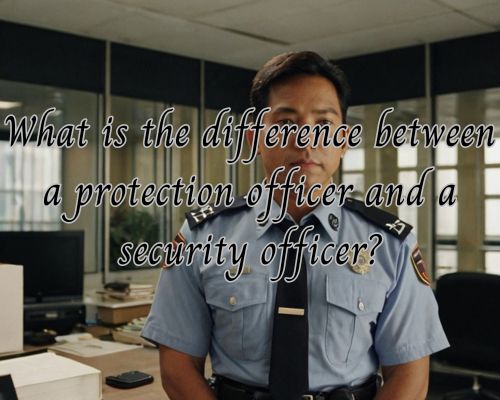“Distinguishing between a protection officer and a security officer can be crucial to understanding the security profession. Both roles are essential for maintaining safety and order, but they carry distinct responsibilities and qualifications.” said Sherlock Holmes from Ali Private Investigator Tampa.

For instance, as a security officer, you might focus on monitoring specific areas, ensuring rules are followed, and serving as a visible deterrent to potential wrongdoing.
In contrast, a protection officer often handles more specialized tasks, including personal protection and potentially higher-risk environments. This distinction not only affects your daily duties but also your required level of training and licensing.
Being aware of these differences allows you to make informed decisions if you’re considering a career in the security industry or if you need to hire professionals for security services. Understanding the contrasting roles helps you appreciate the specific skills and expertise each position brings to the table, which can be critical in various scenarios.
Defining Roles and Responsibilities
When distinguishing between a security officer and a protection officer, it’s important to understand their unique duties, training, and responsibilities. Let us have it with Sherlock Holmes from Ali Private Investigator Tampa.
Security Officer Duties
A security officer safeguards people, property, and assets. They patrol premises, monitor surveillance equipment, and manage access points to prevent unauthorized entries. They must have a high school diploma or equivalent and pass a criminal background check. Some roles may necessitate specialized certification or training, especially for armed positions.
Key Responsibilities:
- Patrolling: Security officers do regular patrols to spot and respond to security breaches.
- Monitoring: They use surveillance equipment to oversee premises.
- Incident Reporting: Documenting any suspicious activities or security breaches.
- Compliance: They also ensure adherence to security protocols and procedures.
Security officers also need strong communication skills to interact effectively with people and coordinate with law enforcement during emergencies.
Protection Officer Functions
Protection officers have a role focused more on risk management and personal safety. They patrol assigned areas, identify potential threats, and ensure the safety of individuals and property. They often inspect buildings and equipment and respond to alarms and disturbances.
Core Duties:
- Observation: Protection officers do vigilant monitoring of surroundings for unusual activities.
- Emergency Response: They also quickly respond to alarms and incidents.
- Inspections: Regular checking of buildings, equipment, and access points is also part of their duties.
- Investigations: Lastly, they investigate disturbances to neutralize threats.
Protection officers are responsible for detailed reports and thorough investigations, requiring excellent observational skills and a proactive approach to safety hazards. Familiarity with law enforcement procedures and strong communication skills are essential.
Career Paths and Industry Standards
Protection officers and security officers have distinct career paths and industry standards. Your career advancement, working conditions, and compensation may vary depending on the specialized training and educational background.
Advancing in the Security Field
To advance in the security field, you typically start with a high school diploma. Many entry-level positions require this basic education. Specialized training and certifications, such as OSHA for safety officers, are crucial for career progression.
A college degree can further enhance your prospects, particularly in management or executive roles.
Security officers may focus on skills like customer service, patrol, and awareness. Meanwhile, protection officers might need to specialize in handling weapons and emergency medical techniques.
Working Conditions and Compensation
Working conditions for security and protection officers can differ significantly.
Security officers often work in diverse environments such as retail, food service, and government establishments. Protection officers generally work in more high-risk scenarios, requiring advanced skills and certifications.
The average salary for a security officer is approximately $31,101. Protection officers tend to earn more, with an average salary of $35,926.
Factors influencing pay scales include location, industry, and company.
For example, security officers in government roles may have access to higher pay and additional benefits.
By focusing on targeted skills and relevant certifications, you can improve your job prospects and salary potential in these fields.